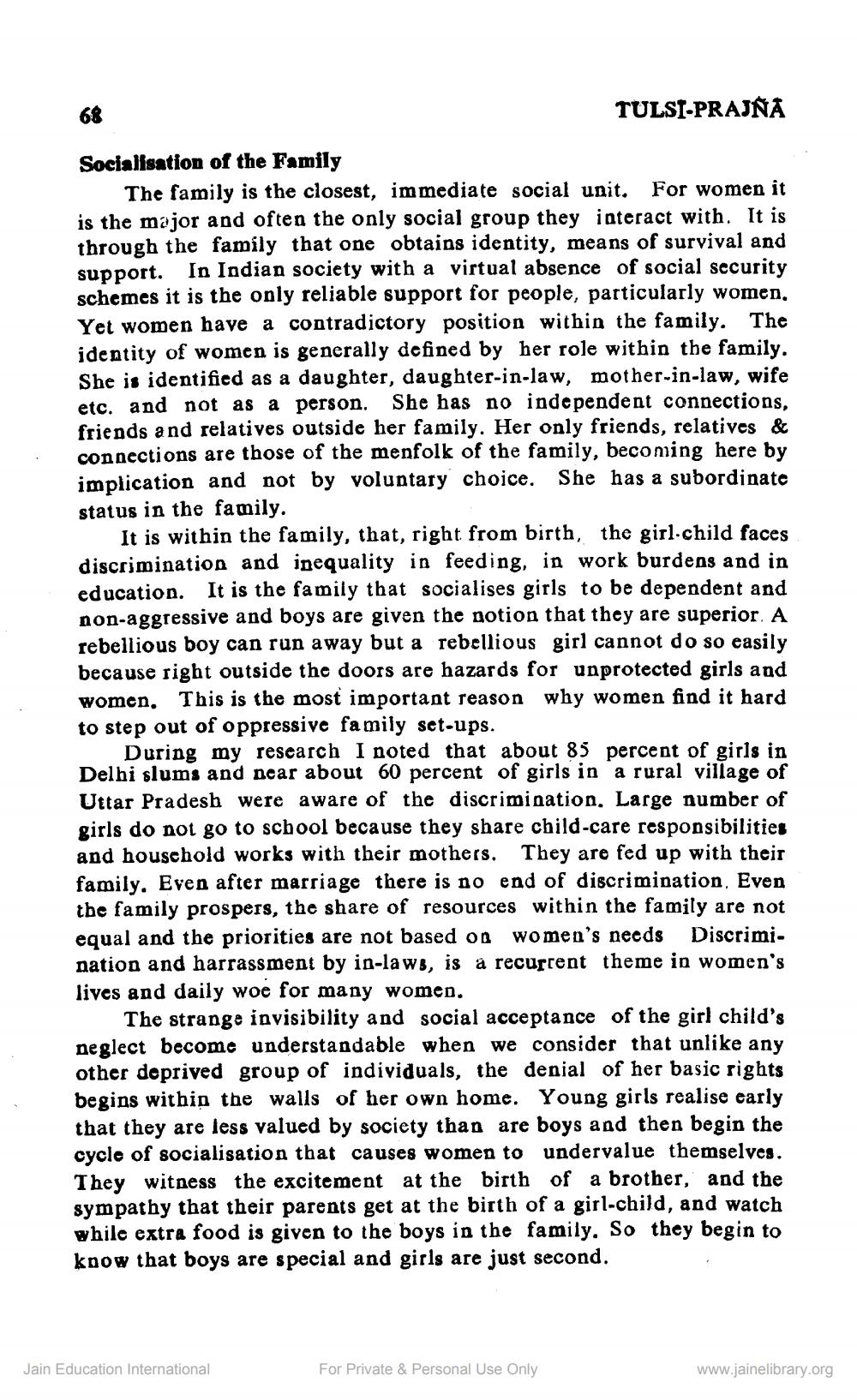________________
68
Socialisation of the Family
For women it
The family is the closest, immediate social unit. is the major and often the only social group they interact with. It is through the family that one obtains identity, means of survival and support. In Indian society with a virtual absence of social security schemes it is the only reliable support for people, particularly women. Yet women have a contradictory position within the family. The identity of women is generally defined by her role within the family. She is identified as a daughter, daughter-in-law, mother-in-law, wife etc. and not as a person. She has no independent connections, friends and relatives outside her family. Her only friends, relatives & connections are those of the menfolk of the family, becoming here by implication and not by voluntary choice. She has a subordinate status in the family.
It is within the family, that, right from birth, the girl-child faces discrimination and inequality in feeding, in work burdens and in education. It is the family that socialises girls to be dependent and non-aggressive and boys are given the notion that they are superior. A rebellious boy can run away but a rebellious girl cannot do so easily because right outside the doors are hazards for unprotected girls and women. This is the most important reason why women find it hard to step out of oppressive family set-ups.
During my research I noted that about 85 percent of girls in Delhi slums and near about 60 percent of girls in a rural village of Uttar Pradesh were aware of the discrimination. Large number of girls do not go to school because they share child-care responsibilities and household works with their mothers. They are fed up with their family. Even after marriage there is no end of discrimination. Even the family prospers, the share of resources within the family are not equal and the priorities are not based on women's needs Discrimination and harrassment by in-laws, is a recurrent theme in women's lives and daily woe for many women.
TULSI-PRAJNA
The strange invisibility and social acceptance of the girl child's neglect become understandable when we consider that unlike any other deprived group of individuals, the denial of her basic rights begins within the walls of her own home. Young girls realise early that they are less valued by society than are boys and then begin the cycle of socialisation that causes women to undervalue themselves. They witness the excitement at the birth of a brother, and the sympathy that their parents get at the birth of a girl-child, and watch while extra food is given to the boys in the family. So they begin to know that boys are special and girls are just second.
Jain Education International
For Private & Personal Use Only
www.jainelibrary.org




